My Works.
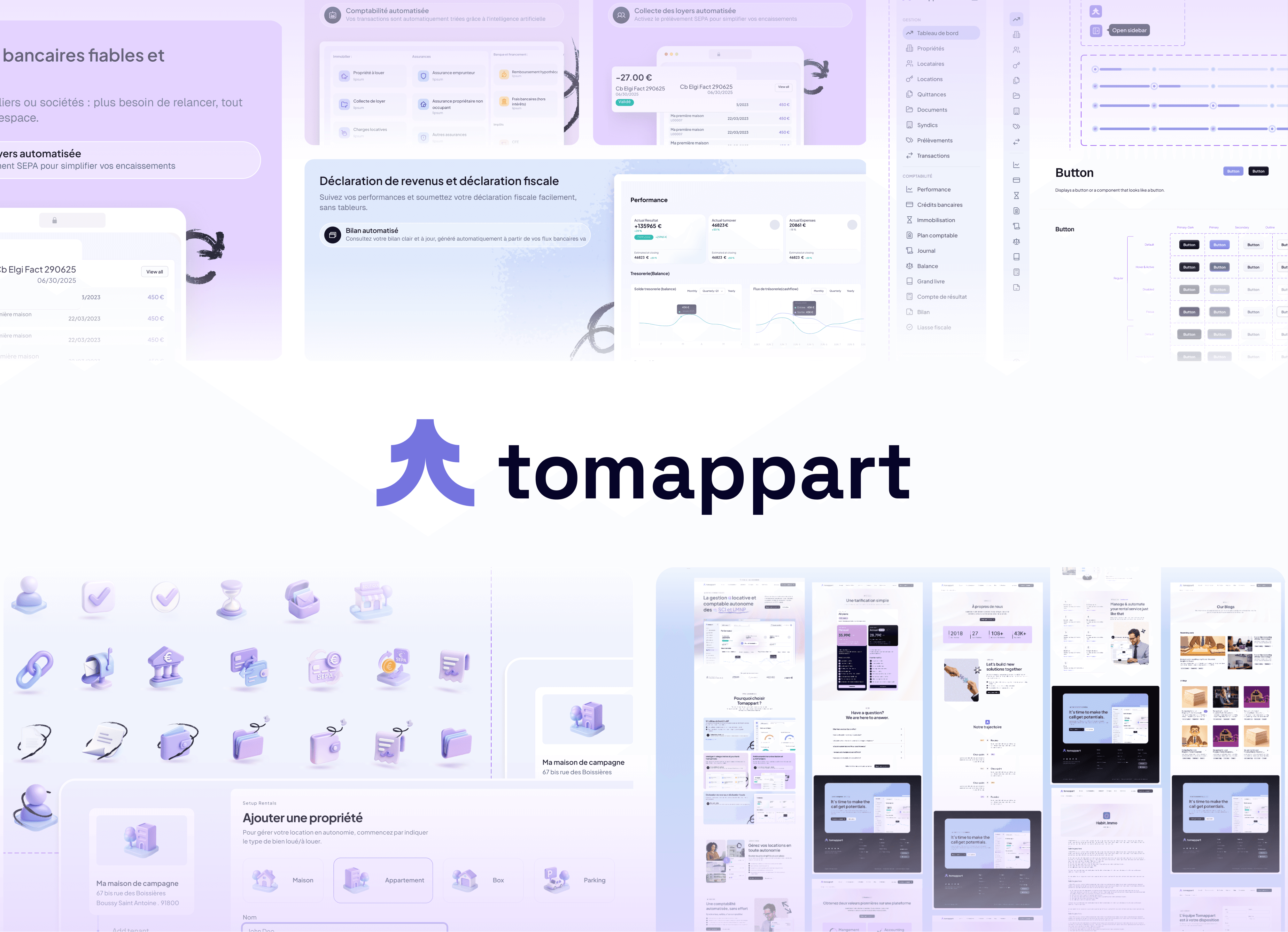
Industry :
Realestate & Financial SaaS
Tomappart: Transforming Property Management Through Design-Led Evolution
Tomappart is a comprehensive property management SaaS for investors and SCIs, automating asset management, accounting, and tenant relations.
I faced an intriguing challenge: how to transform a powerful but complex property management platform into an intuitive experience that both novice and expert users could navigate with confidence. The platform needed to handle sophisticated accounting and property management tasks while remaining accessible to all types of property investors.
I approached this revamp by focusing on the intersection of simplicity and power—creating interfaces that could handle complex financial operations while presenting information in a clear, actionable format that wouldn't overwhelm users.
Process & Approach
I began by immersing myself in the world of property management and accounting, conducting:
User interviews with property owners across experience levels
Competitive analysis of existing property management platforms
Behavior analysis using Hotjar and Hubspot to identify pain points
Workflow mapping to understand the property management journey
Design System Development
The foundation of the revamp was a robust, tokenized design system that would:
Ensure consistency across web and mobile experiences
Accelerate development through reusable components
Support scalability as new features were added
Maintain brand cohesion across all touchpoints
I built this system using a tokenization approach, creating a hierarchy of design elements that could be easily implemented and updated across platforms.
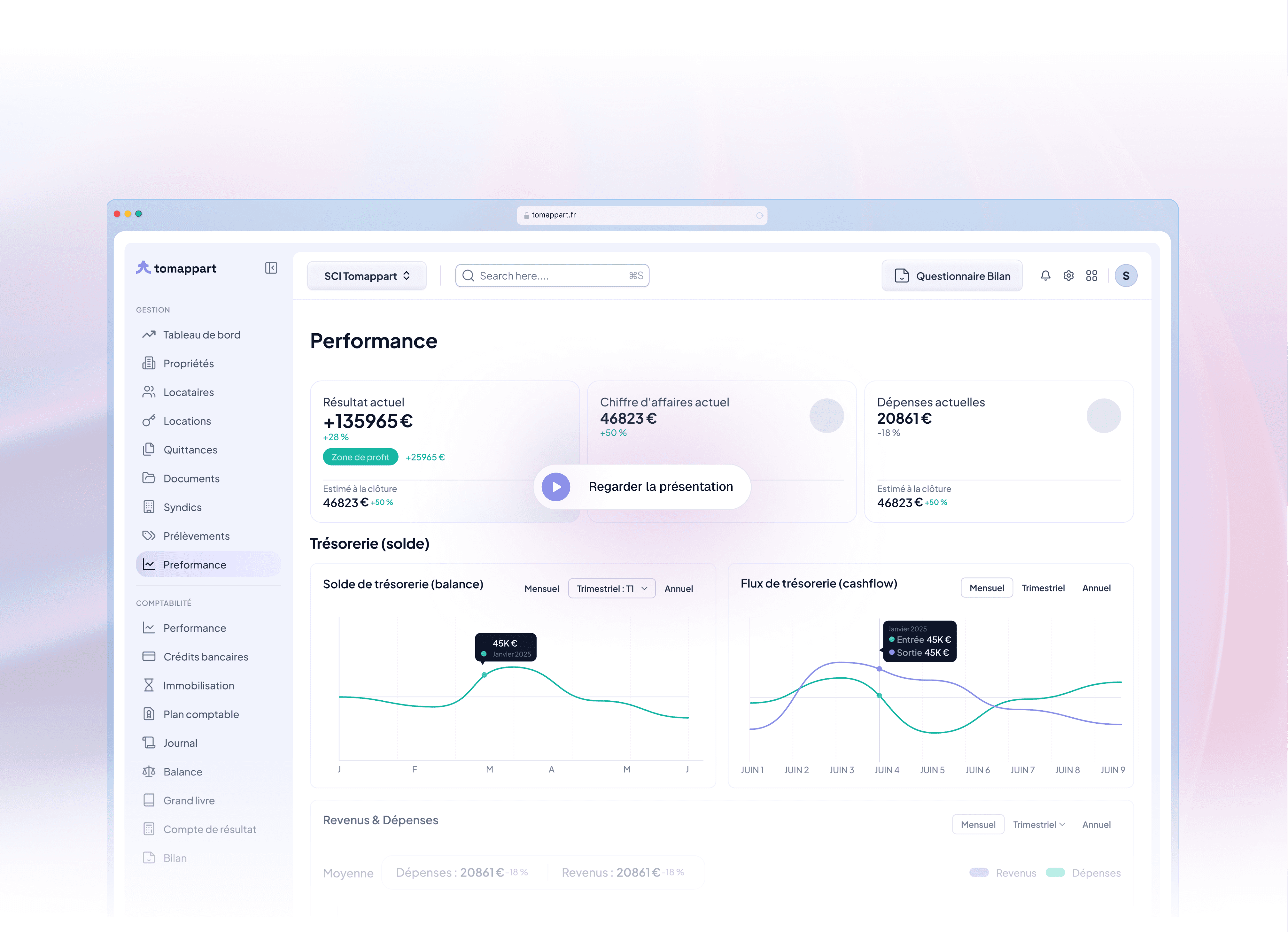
Brand Evolution
The visual identity needed to evolve to better position Tomappart in the market:
Color palette refinement focusing on the distinctive purple and green that conveyed trust and growth
Typography system balancing professionalism with approachability
Iconography development using AI-assisted tools for 3D icon creation
Visual language that communicated complex concepts through simple visuals
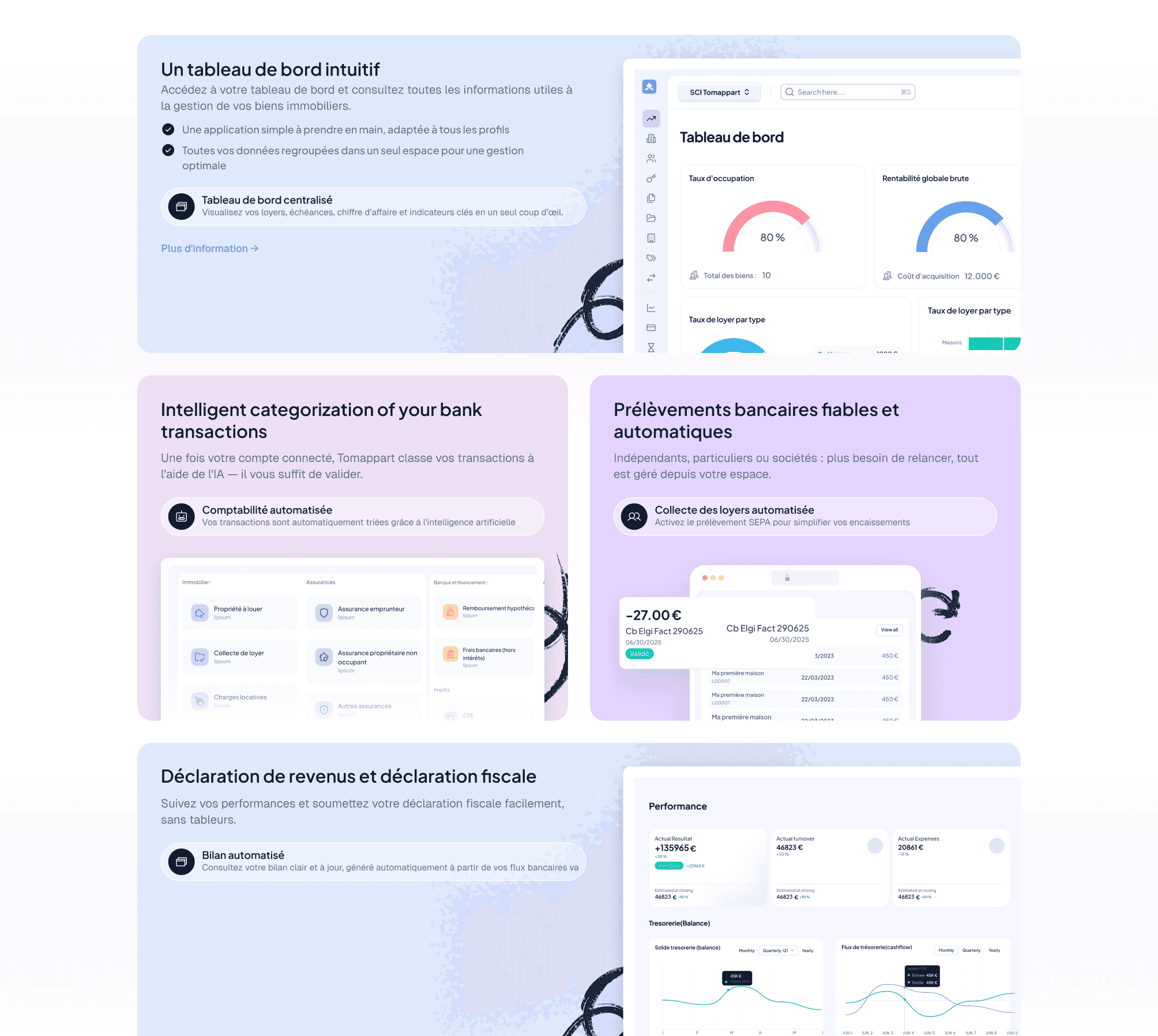
tomappart.com
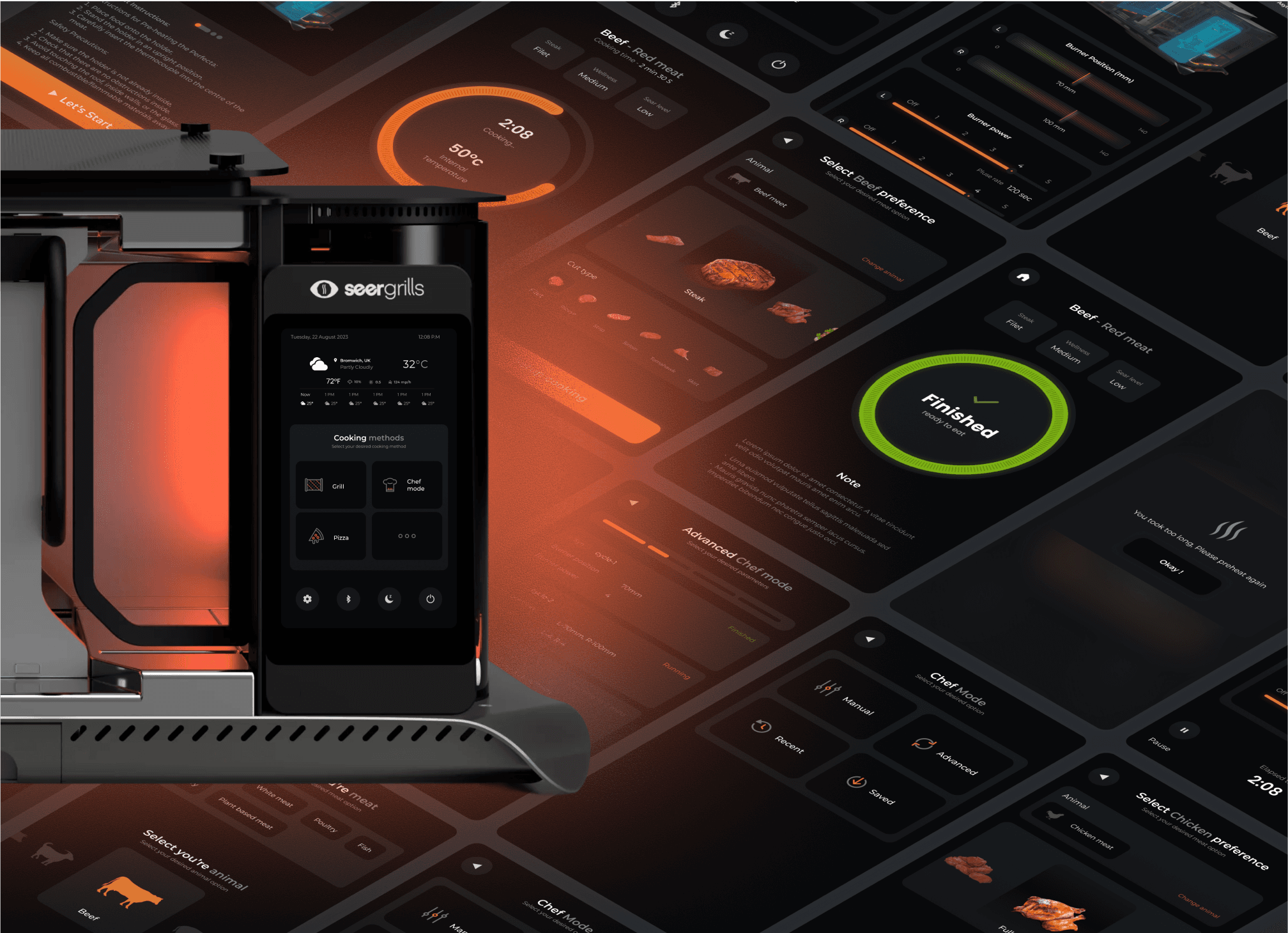
Industry :
AI based appliance
Seergrills Perfecta: AI-Powered Grill Embebbed system GUI
The Seergrills Perfecta represents a revolutionary advancement as the world's first AI-powered grill, combining cutting-edge hardware with sophisticated software to transform the cooking experience. This case study examines the UI/UX design process behind creating an intuitive, accessible interface for this innovative smart appliance.
seergrills.com
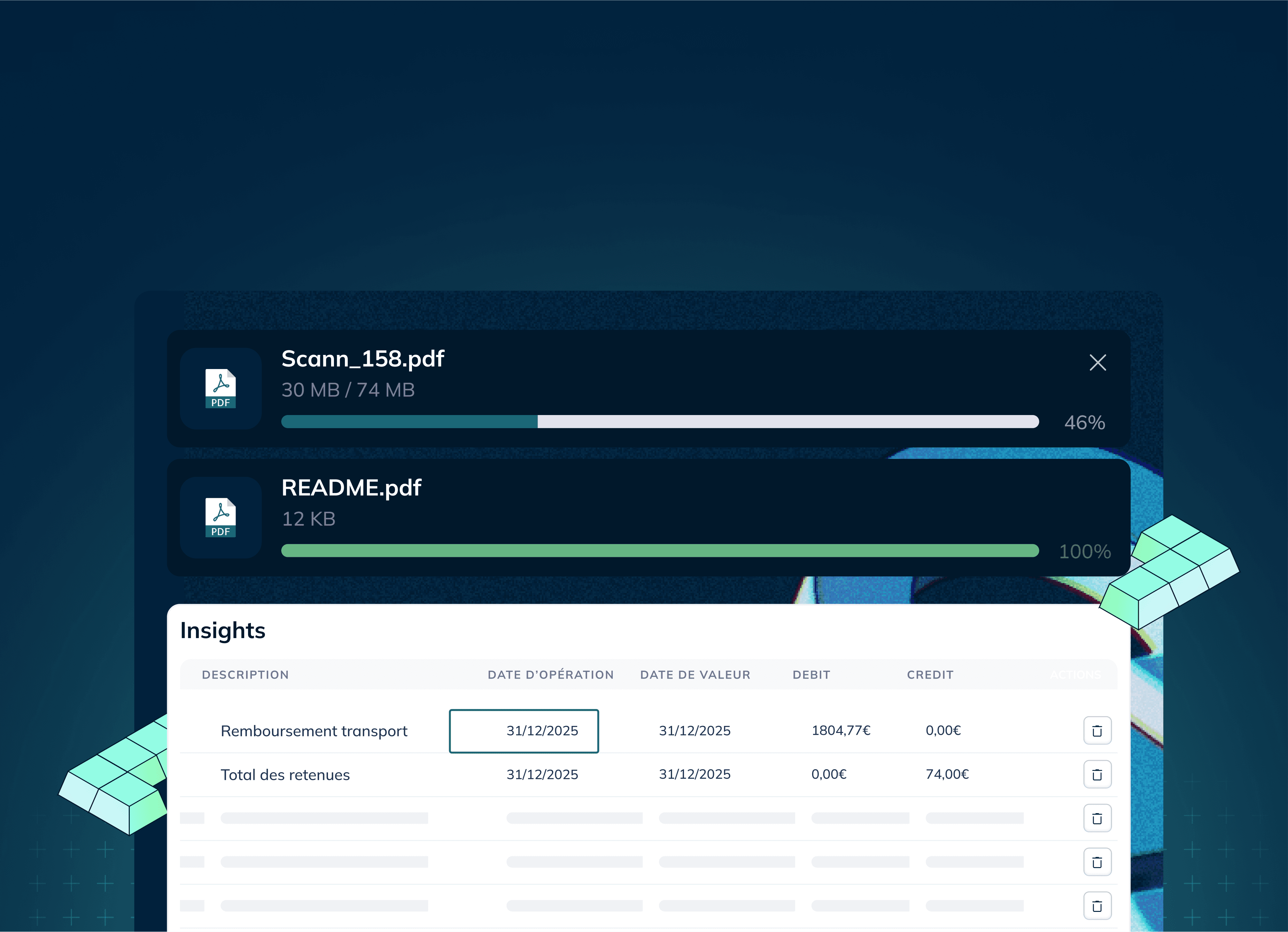
Industry :
Accounting Tools
Expert-OCR Platform Revamp: Modernizing Document Workflow Automation
The Expert-OCR platform revamp transformed a powerful but technically complex optical character recognition (OCR) and data extraction API into an intuitive, enterprise-grade SaaS application. This case study examines the user-centered design process and DesignOps implementation that created a unified interface for managing high-volume document processing, review, and integration workflows.
Process & Approach
The design process followed a developer-centric approach to creating a technical yet accessible interface:
User & Market Research: Identifying core pain points of operations analysts, data managers, and IT administrators through interviews, competitive analysis, and journey mapping.
Information Architecture Restructuring: Reorganizing the entire platform's navigation and data flow around user tasks, moving away from a feature-centric model.
Visual System & Prototyping: Developing a clean, professional UI language and interactive prototypes focused on the critical "review and correct" workflow.
Component System Design: Building a modular, reusable library of UI components to ensure consistency and accelerate development.
Cross-Functional Handoff: Establishing clear DesignOps workflows for seamless collaboration between design, front-end, and back-end engineering teams
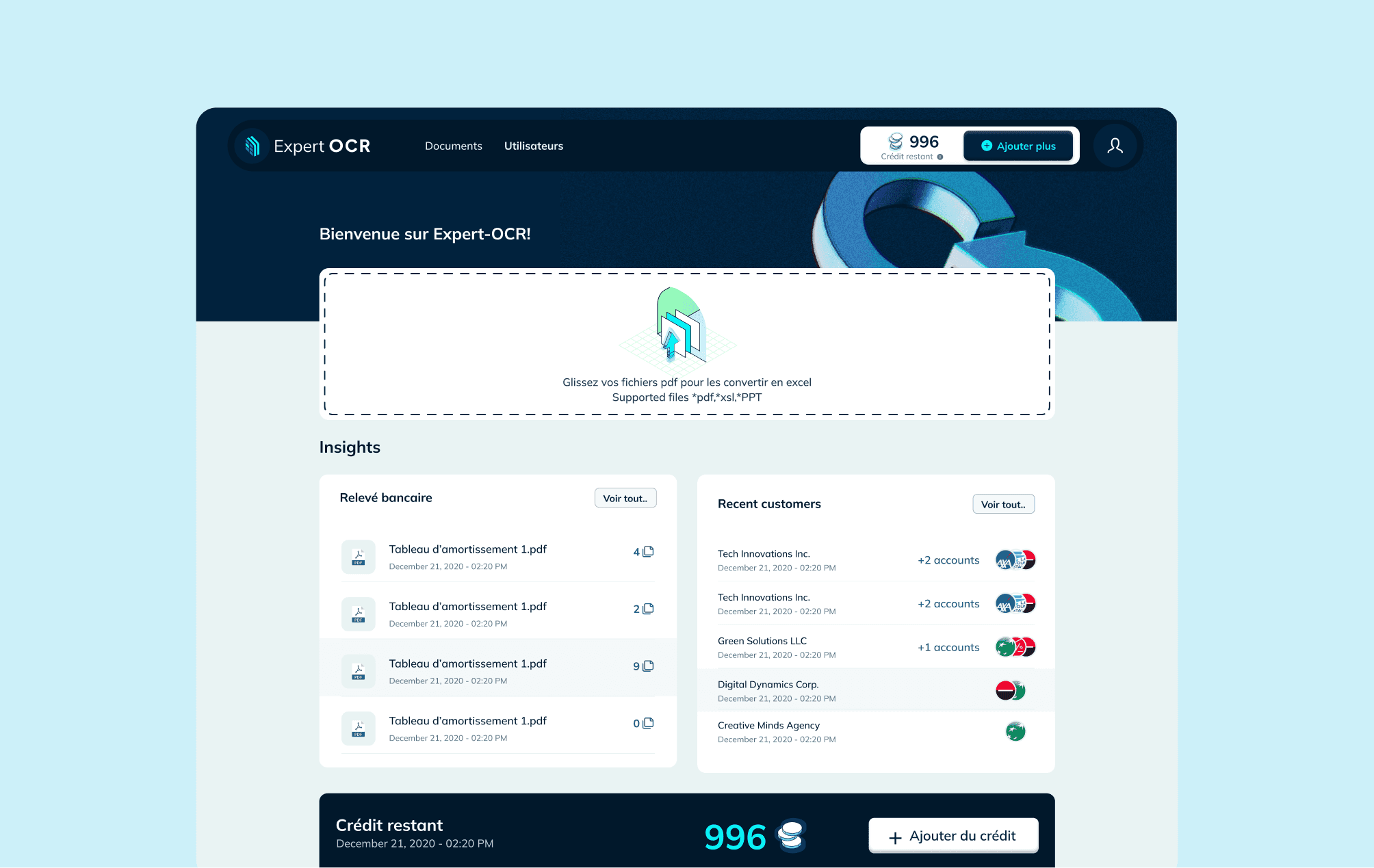
expert-ocr.com
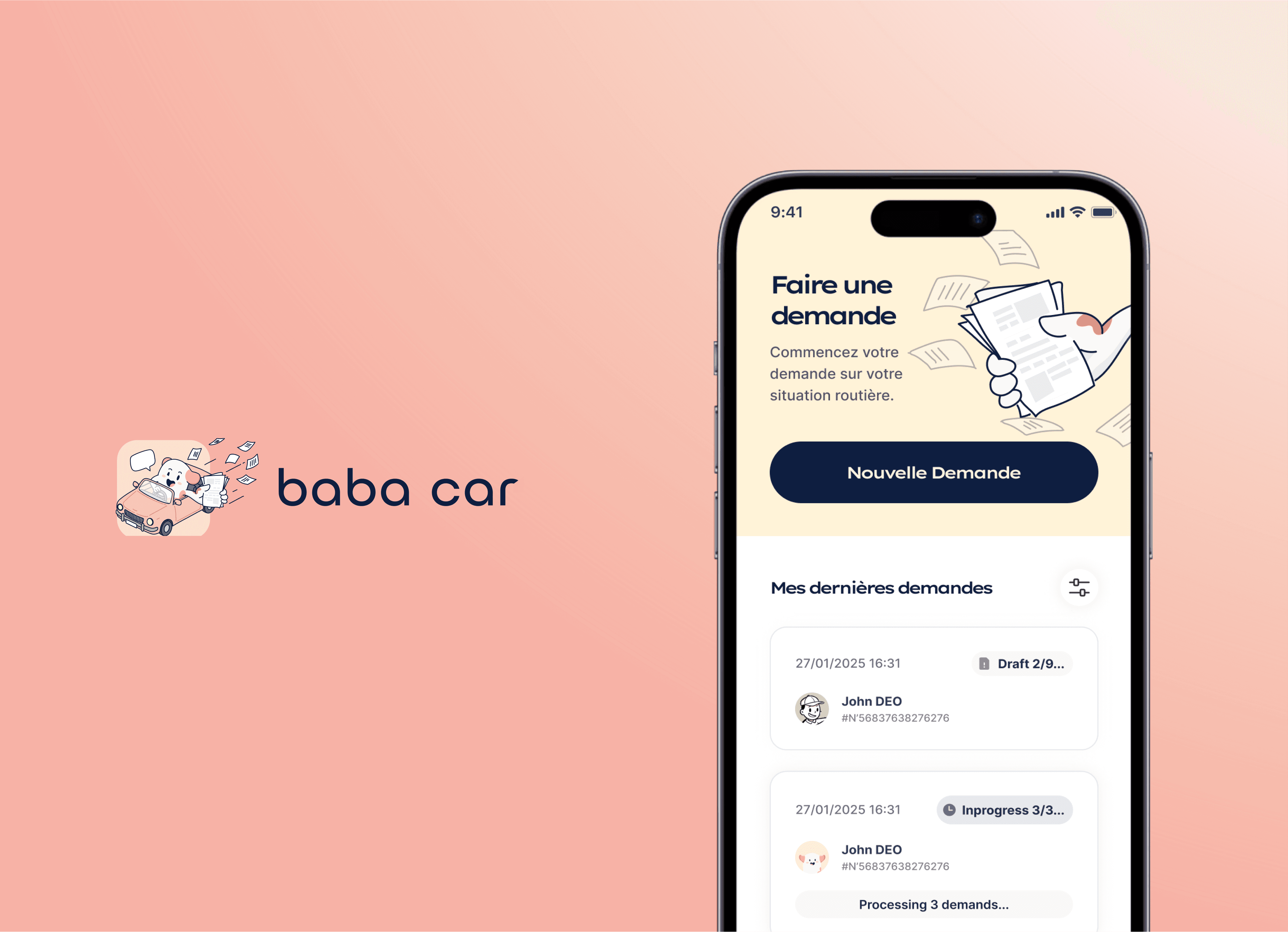
Industry :
Legal enttities
Baba-Car Mobile App: Simplifying Traffic Fine Management in France
Baba-Car is a mobile application designed to remove the complexity and anxiety from managing traffic fines for drivers in France. This case study examines the user-centered design process that transformed a fragmented, bureaucratic procedure involving multiple regional prefectures into a single, streamlined digital service. The core challenge was designing a trustworthy experience that handles sensitive personal data and legal authorization with clarity and ease
Process & Approach
The design process was anchored in simplifying a known stressful administrative task, focusing on transparency and user guidance.
Problem Validation & User Research: The design started from a well-defined user pain point: the difficulty of manually checking for forgotten fines across multiple French départements, which can lead to costly fee increases. User interviews confirmed anxiety over missing mail and confusion about which prefecture to contact.
Task Analysis & Journey Mapping: The complex bureaucratic process was deconstructed into a linear, user-controlled flow. Each step was designed to request only the essential information needed to execute the legal inquiry on the user's behalf.
Trust-Centered Interface Design: A primary focus was building instant user trust. The UI employs clear language, explains the purpose of each step (especially the legal mandate signature), and emphasizes data security.
Clarity-First Prototyping: Wireframes and prototypes prioritized a minimal, step-by-step wizard. The goal was to make a process that normally takes hours of research and phone calls completable in "less than 5 minutes".
Compliance-Integrated Design: Legal and data privacy requirements (like GDPR) were not afterthoughts but core design constraints, shaping the flow for submitting ID copies and signing digital mandates.
baba-car.fr
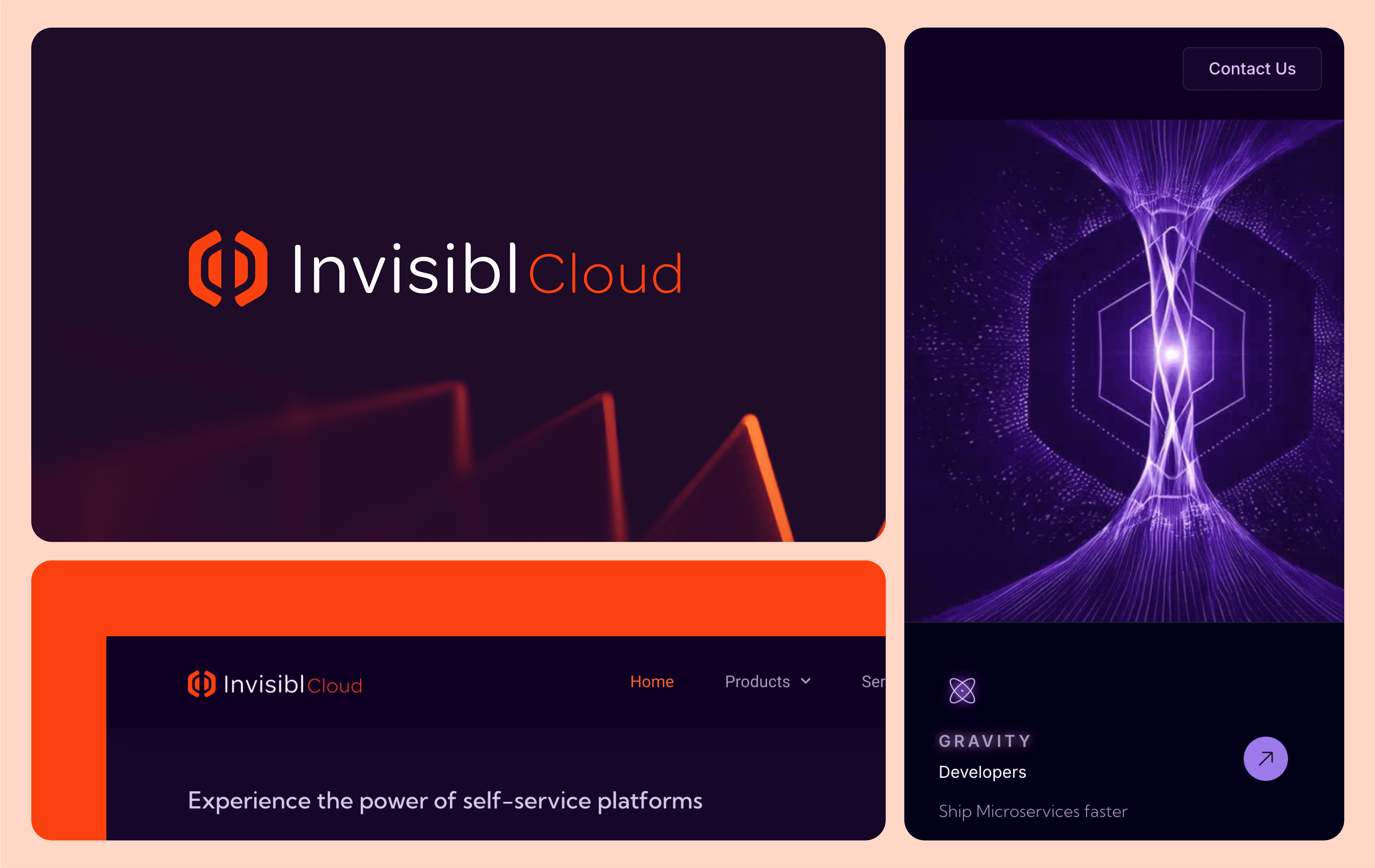
Industry :
cloud computing
Invisibl Cloud: Branding
Invisibl Cloud represents a sophisticated branding solution for a cloud-based management system that makes the invisible infrastructure of cloud computing visible and accessible. This case study examines the strategic design decisions behind creating a distinctive visual identity that communicates technical precision while maintaining visual appeal.
Process & Approach
The design process followed a methodical approach to brand development:
1.Conceptual Exploration: Investigating the duality of visible/invisible through geometric forms
2.Mathematical Precision: Applying golden ratio proportions and grid-based construction
3.Symbolic Integration: Incorporating industry references (Kubernetes hexagon) and letter forms
4.Color Psychology: Selecting a vibrant orange-red against deep indigo to create visual impact
5.Typography Selection: Pairing clean sans-serif with weight variation to enhance brand personality

invisibl.io
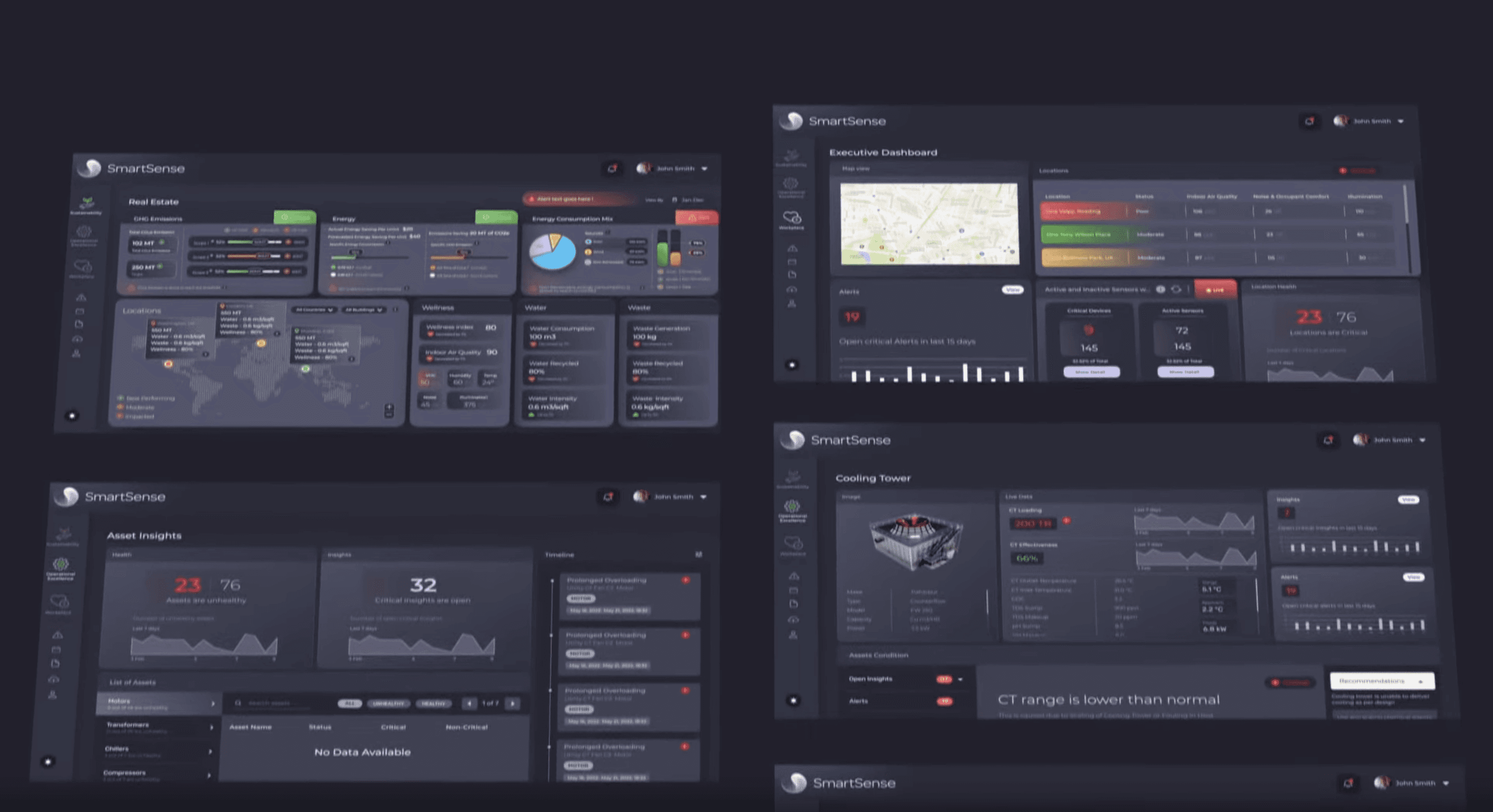
Industry :
AI/ML powered platform
Ecolibrium SmartSense: Data Visualization UI/UX
Ecolibrium SmartSense is an AI/ML-powered decarbonization platform that transforms complex sustainability data into actionable insights through an intuitive dashboard interface. This case study examines the UI/UX design and DesignOps processes that created a unified visualization system for monitoring environmental impact across entire building portfolios.
Process & Approach
The design process followed a systematic approach to creating a complex data visualization interface:
• User Research: Identifying the needs of sustainability managers, facility operators, and executive stakeholders
• Information Architecture: Structuring complex environmental data into logical, accessible hierarchies
• Visual System Development: Creating a cohesive design language optimized for data comprehension
• Component Design: Building a modular system of UI components for consistent implementation
• Cross-Functional Integration: Establishing DesignOps workflows for seamless collaboration with development